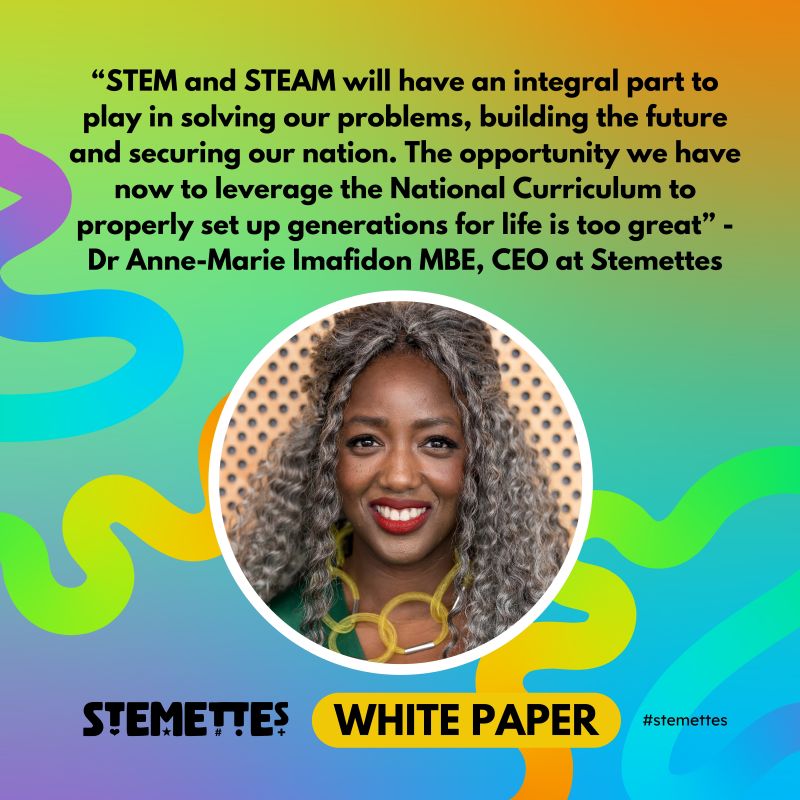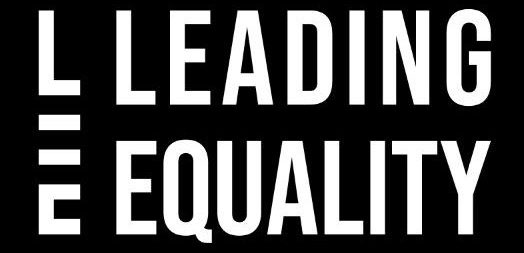STEM National Curriculum challenged at the House of Commons to improve diverse representaion

I’m excited to share that I’ve been invited to the launch of the new Whitepaper on the lack of representation of women in the National GCSE/A-Level STEM Curriculum, hosted by Stemmettes at the House of Commons, which aligns with the celebration of International Women’s Day in 2024
_________________________________________________________________
A call to action from three teenagers to include women role models in the STEM curriculum has culminated in a white paper presented at the House of Commons this week, supported by MP for Brent Central Dawn Butler.
Stemettes, a social enterprise that has helped over 65,000 young girls and non-binary people with STEM-based interventions, authored the white paper, Equitable Curriculum Reform: More and Diverse Female and Non-Binary Representation in The UK GCSE and A-Level Science, Technology, Engineering and Maths Curriculum, which recommends a series of changes to the Department of Education, as well as asks for industries, institutions, parents and carers, educators and the wider public.
In early 2023, a letter from students Dinah Lewis, Jaynie Shah and Ruben Persey to the Secretary of State for Education called for greater representation of women in STEM in the national curriculum to encourage higher engagement and visibility for female students.
For an example of the disparity, 14 male scientists are mentioned in the National Curriculum’s Science content for KS3-5, contrasted with one female scientist. For Mathematics, the ratio is three to zero.
The students’ call for change was backed by a survey commissioned by Stemettes and supported by the British Science Association, which found that one in three participating students “can’t remember being taught about women scientists in the last two years at school”, data which was supported with further evidence collected across three roundtable discussions with educators, parents and carers, students, and industry bodies.
The white paper recommendations include:
● The Government must include more and diverse representation, in the form of role models, into the UK GCSE and A-Level Science, Technology, Engineering and Maths statutory subject content.
● Institutes should equitably raise the profiles of their diverse members and ensure the educational resources they create are accessible and actively inclusive.
● Industry should support grassroot efforts to build their future workforce pipeline, including seeking to support educational organisations through providing funding to grassroots initiatives, volunteering days/schemes and by raising the profile of internal role models.
● Senior members within education should actively support the campaign for diverse representation within the curriculum and should look to engage in whole anti-bias training.
● Parents and carers should call upon the educational institutions of their children to actively work towards an equitable curriculum and work, at home, to rewrite the narrative around gender roles in STEM with their children.
These recommendations were made after roundtable sessions in Birmingham, London, and Newcastle. These discussions were co-chaired by Dr Anne-Marie Imafidon MBE and Ruben Persey, Dinah Lewis, and Jaynie Shah respectively, to discuss the representation of women in the STEM curriculum, and the negative impacts the lack of women role models has on students engaging with the subjects.
Participants at the roundtable included the National Education Union, Natural History Museum, Engineering UK, University College London, parents, teachers, and students.
Parents contributing to the roundtables shared their thoughts on the curriculum, and how the gaps impact their young people:
”LGBTQIA+, ethnic minority groups and women are all missing unless teachers broaden the curriculum to include these kinds of role models as enrichment not as basic information” – Parent, West Sussex ”
It is not inclusive or diverse, it simply reinforces stereotypes of middle aged, white men in lab coats” – Parent, Worcestershire
Standard Chartered’s Hind Naciri joined the roundtables in her capacity as both a parent and Head of Community Impact and Engagement in Europe working to develop the future of women in STEM. She says:
”I have to do a lot of extra work to counteract the influences my eldest gets from society, from her friends, from school and from the curriculum. So she’ll come home talking about a male technician or a male scientist and I have to buy five books about a woman in STEM to counter that.”
Founder of Stemettes Dr Anne-Marie Imafidon MBE, comments:
“Including the names and accomplishments of women in the national curriculum is a very simple way to welcome more brilliant minds into STEM/STEAM (Science, Technology, Arts, Engineering and Maths) too. Our National ambitions require people who can problem solve and build the future – both skills that are developed in students that engage with STEM and STEAM. Setting a national inclusive standard can be a small ripple that makes tidal waves of change, inspiring and supporting future generations of innovators and visionaries.”
Dinah/Ruben/Jaynie believe that the white paper represents an opportunity for change in the national curriculum, with Ruben saying:
“If young girls can’t see examples of themselves in the curriculum, if they can’t see examples of female scientists, how can we expect them to go into STEM careers? I think that summarises why this change is so important”.
To empower teachers, parents and students into fostering strong STEM learning opportunities and comfortability, Stemettes strongly urges the government and wider society to implement the recommendations, increasing the visibility of gender diverse people in science, technology, engineering and mathematics in the past, present, and future.
Now in their 11th year, Stemettes is looking forward to amplifying this conversation and creating change that can truly impact the next generations of young girls and non-binary people into STEM subjects and careers.
